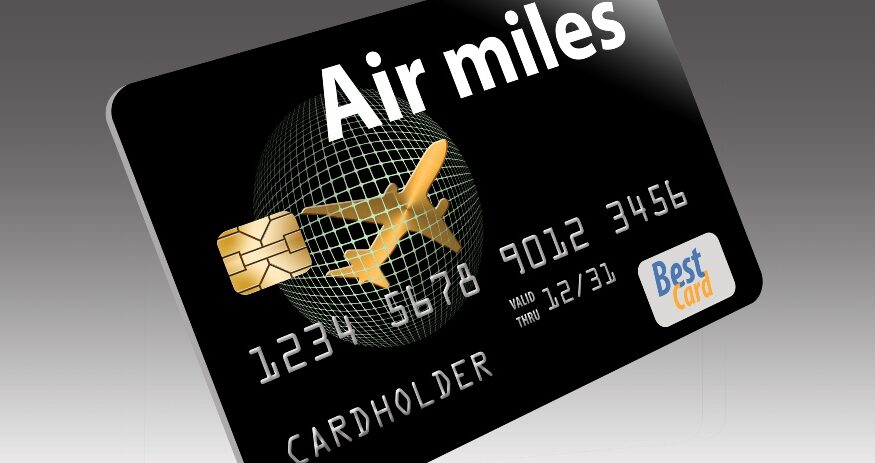South Carolina’s tourism industry could endure ‘devastating blow’ if this credit card bill passes
Krys Merryman //February 20, 2024//

Rewards programs help make travel possible for many card holders, pumping dollars into tourism coffers across the country. (Photo/DepositPhotos)

Rewards programs help make travel possible for many card holders, pumping dollars into tourism coffers across the country. (Photo/DepositPhotos)
South Carolina’s tourism industry could endure ‘devastating blow’ if this credit card bill passes
Krys Merryman //February 20, 2024//
A bill that could change how credit card transactions are processed and credit card rewards programs that many people rely on to pay for travel is currently under consideration in Congress.
If the Durbin-Marshall credit card bill is passed, according to experts, that would mean millions of Americans would no longer have access to points that help pay for flights, hotels, car rentals, meals and more.
In 2022, visitors to South Carolina spent more than $25 billion, according to global PR and marketing agency FleishmanHillard. The state’s tourism industry supports one in 10 South Carolina jobs and generates nearly $2 billion in local and state taxes. In Charleston alone, 7.7 million visitors traveled to the city in 2022, creating $12.8 billion in economic impact and supporting 51,000 jobs. Should the Durbin-Marshall Credit Card bill become law, South Carolina could see steep declines in visitor spending, which would have major impacts on finances for the state and local municipalities, the agency said.
The focus of the bill is to change the way businesses process their credit cards and drive down the cost of credit card processing for large retailers, according to Gene Kirby, former chairman of the Consumer Bankers Association. A byproduct of that decision would be the elimination of credit card reward programs, he added.
If passed, this bill would allow merchants to process credit card transactions through smaller, lesser known, and less tested networks, said Kirby. Currently, banks charge a small “interchange fee” to facilitate the processing of credit card transactions. Interchange fees in the U.S. typically range between 1% and 3% of the transaction amount and are used to guarantee the security of the transaction and protect consumers from fraud, he said. Banks also use the fee to fund rewards programs, like cash back and points for travel. If the Durbin-Marshall credit card bill passes, the loss of interchange fees would lead to either significant reductions or, more likely, the elimination of credit card reward programs like cash back and travel rewards, he added.
This bill is being pushed forward by the largest retailers such as Walmart, Target, Amazon and Home Depot, according to Kirby.
“They would see a significant reduction in their credit card interchange paid to the banks, so essentially this bill shifts money from the banking industry – and rewards from credit card users – to the largest retailers,” he said. “Does anyone really expect mega retailers will cut prices by 1-2% and pass the savings onto consumers if they pay less in interchange fees? The real losers will be consumers who will lose credit card rewards that help fund vacations to South Carolina.”
Forty-one percent of Americans have some type of credit card tied to a rewards program and 25% have a credit card that’s tied to airline reward programs, said Kirby.
“In 2022, $68 billion was earned in credit card rewards by cardholders and much of that money was used for travel. Eliminating credit card rewards would mean travelers would have to pay more out of their pockets for airfare, hotel stays, car rentals, gas and more. That means travelers will either travel less or spend less when they arrive at their destination. And that means fewer dollars spent at our state’s small businesses, in our restaurants, on tours and more. So, I’m very concerned about the impact this bill would have on tourism in South Carolina.”
Eliminating credit card rewards would result in less tourism for South Carolina, which means less revenue for cities in the state, said Kirby.
“As a result, local and state governments would see a budget deficit that will result in either higher taxes or cut services,” he said. “No one wants to see that.”
Sam Queen, director of corporate communications for the South Carolina Department of Parks, Recreation & Tourism, said hospitality is an important sector of the state’s economy, fueling businesses big and small.
“Like our counterparts around the country, we are keeping an eye on the Credit Card Competition Act,” she said. “Due consideration should be made about how the bill may unintentionally impact the tourism industry. Data reflects that credit card reward programs contribute to significant travel and spending, and if those dried up, it could change the way a segment of travelers plan and pay for at least some of their leisure travel.”
Kirby said he has attempted to reach out to both U.S. senators of South Carolina, Tim Scott and Lindsey Graham, to see where they stand on the issue, but neither has responded to his inquiry.
“To the best of my knowledge, both are undecided at this point and that’s why I think it’s so important to educate the public about this bill,” said Kirby. “I believe it’s bad for consumers, it’s bad for small business owners, and it’s bad for tourism.”
SC Biz News attempted to reach Scott and Graham’s offices via email on Monday morning for comment but had not received a response as of Tuesday morning.
The Senate is currently considering the bill and Sen. Dick Durbin of Illinois – who has sponsored the legislation – has scheduled a committee hearing for April, said Kirby.
“Advocates in Congress are fighting to pass the bill and eliminate credit card rewards as soon as possible,” he added. “The Durbin-Marshall credit card bill will deal a devastating blow to Charleston’s economy. The bill will make trips to South Carolina more costly for travelers, reduce the number of tourists spending money at our local small businesses, jeopardize jobs in the retail and hospitality industries, and lower the amount of tax revenue at the local and state levels.”
C















